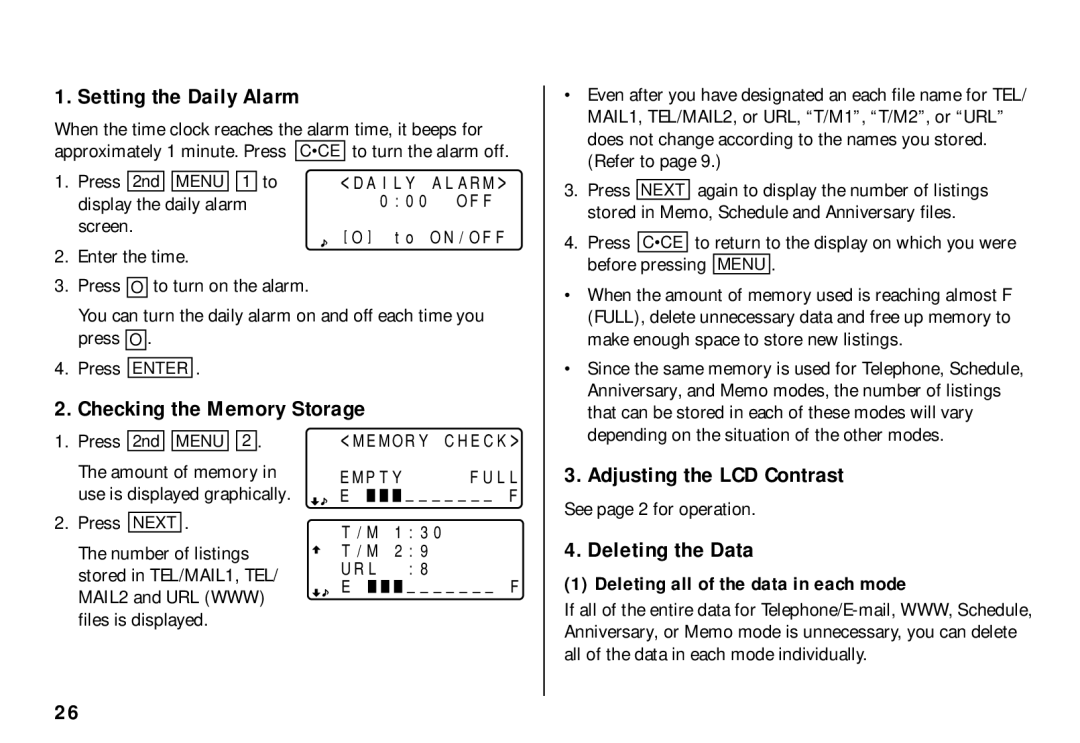
1. Setting the Daily Alarm
When the time clock reaches the alarm time, it beeps for approximately 1 minute. Press C•CE to turn the alarm off.
•Even after you have designated an each file name for TEL/ MAIL1, TEL/MAIL2, or URL, “T/M1”, “T/M2”, or “URL” does not change according to the names you stored. (Refer to page 9.)
1.Press 2nd ![]()
![]() MENU
MENU ![]()
![]() 1 display the daily alarm screen.
1 display the daily alarm screen.
to
<DAILY ALARM> 0:00 OFF
[O] to ON/OFF
3. | Press | NEXT | again to display the number of listings |
| stored | in Memo, Schedule and Anniversary files. | |
4. | Press |
| to return to the display on which you were |
C•CE | |||
2.Enter the time.
3.Press O to turn on the alarm.
You can turn the daily alarm on and off each time you press O .
4.Press ENTER .
2. Checking the Memory Storage
before pressing MENU . |
• When the amount of memory used is reaching almost F |
(FULL), delete unnecessary data and free up memory to |
make enough space to store new listings. |
• Since the same memory is used for Telephone, Schedule, |
Anniversary, and Memo modes, the number of listings |
that can be stored in each of these modes will vary |
1.Press 2nd ![]()
![]() MENU
MENU ![]()
![]() 2 .
2 .
The amount of memory in use is displayed graphically.
2.Press NEXT .
The number of listings stored in TEL/MAIL1, TEL/ MAIL2 and URL (WWW) files is displayed.
<MEMORY CHECK>
EMPTY | FULL | |||||
E |
|
|
|
|
| |
|
|
| ||||
T/M | 1:30 |
T/M | 2:9 |
URL | :8 | |||||
E |
|
|
|
|
| |
|
|
| ||||
depending on the situation of the other modes. |
3. Adjusting the LCD Contrast
See page 2 for operation.
4. Deleting the Data
(1) Deleting all of the data in each mode
If all of the entire data for
26
